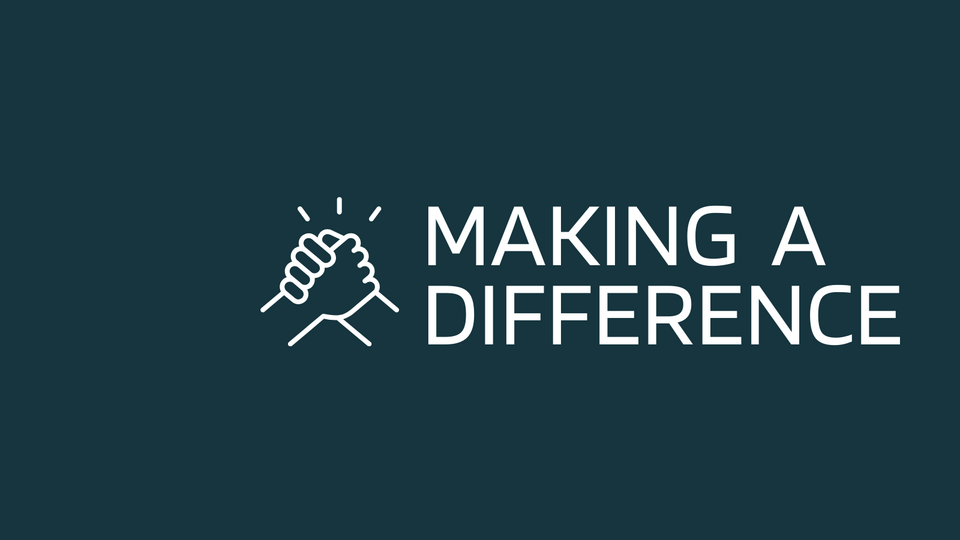Can you tell a story using photos?
Enter the Philip Perry Photojournalism Challenge for the chance to win $500-$5,000 in scholarship to continue your studies at Nebraska.
Open to all undergraduate majors at CoJMC graduating no sooner than May 2027.
About the contest
Registration Opens
Monday, January 26
- 12 pm: Perry Challenge opens for all CoJMC majors—only the first 20 students to sign up can participate.
Pre-meeting
Friday, February 13
- 4 pm: Pre-meeting to review rules and expectations in ANDN 336.
Kick-off Meeting
Saturday, February 21
- 9 am: Perry Challenge kickoff meeting with judges via Zoom.
- 10 am: Challenge begins. Participants have 24 hours to shoot and edit a photo essay of up to 10 photographs that coincide with the 2026 theme, Making a Difference.
entries are due
Sunday, February 22
- 10 am: Photo essay and caption submissions are due. Late submissions are disqualified.
initial judging
February 23-27
- Judges review entries independently and prepare feedback.
final review & presentations
Saturday, February 28
- 10 am: Judges review essays and share feedback in ANDN 336. Participants must be present.
- 2 pm: Judges announce top five finalists.
- 4 pm: Finalists rehearse their presentations in ANDN 15.
- 5 pm: Finalists present their work to judges, faculty/staff and the public. Winners will be announced.
Eligibility
- Open to all undergraduate majors in the College of Journalism and Mass Communications graduating no sooner than May 2027.
- No pre-requisite courses/experiences are required to compete.
- The contest is limited to the first 20 students who register.
- Photographs must be taken using the provided equipment during the contest period only.
- Participants must be present for the pre-meeting, kickoff meeting, 24-hour competition and judging (exceptions may be granted for students participating in conflicting CoJMC sponsored events).
Equipment
- All equipment is provided by the College of Journalism and Mass Communications.
- Participants may not use their own equipment and must return equipment following the competition.
Judging Criteria
- Subject matter: Does the photo essay fully capture the theme? Do the images support the story idea and intent?
- Impact: What emotions does the photo essay evoke?
- Creativity: Did the contestant convey an original and imaginative idea, message or thought throughout their photo essay?
- Composition: Ability to bring visual elements together to express the purpose of the images in a consistent manner. The images draw the viewer in and prompt the viewer to look where the creator intended.
- Technical quality: The use of color and lighting in the images is thoughtful and enhances quality. The images are clear and in focus.
- Storytelling: The photo essay delivers a story that encapsulates the contest theme.
About the Prize
Winning participants will receive scholarships applied directly to their student accounts during the 2026-2027 academic year:
- 1st place: $5,000
- 2nd place: $2,500
- 3rd place: $1,500
- 4th place: $500
- 5th place: $500
The Judging Team
Contest Rules
- Contest participants must be available and in Lincoln, Nebraska, for the event on February 13, 21, 22 and 28.
- Entries must be the sole and original work of the entrant taken during the contest period beginning at 10 a.m. on February 21 and ending at 10 a.m. on February 22, 2026.
- Photo and caption entries must be submitted by the deadline of 10 a.m. CST on Sunday, February 22, 2026.
- Each photo entry should contain the following information: title of essay, name of contestant, time and location of the photographs, and captions.
- Each photograph should include a caption that clearly identifies the people and location that appear in the photo; includes the date and day the photo was taken; provides some context or background to the reader so he or she can understand the news value of the photographs.
- On Saturday, February 28, 2026, the judges will select five contest finalists using the criteria listed above.
- On Saturday, February 28, 2026, the five finalists will present their essays in-person in Andersen Hall 15. The judges will have the opportunity for questions following the presentations. The judges will rank the top five winners, awarding first through fifth place following the presentations. The judge's decisions are final.
- By submitting the entry form, entrants are agreeing to grant the Board of Regents of the University of Nebraska, its component campuses, its representatives, employees, agents and assigns, the irrevocable and unrestricted right to use, reproduce and publish, royalty-free, submitted photographs for editorial, trade, advertising or any other purpose and in any manner and medium; to alter the same without restriction. Entrants release the University of Nebraska, its component campuses and its Regents, officers, employees, agents, legal representatives and assign from any and all claims, actions and liability related to its use of said photographs.
- All entrants hold the Board of Regents of the University of Nebraska, its component campuses, its representatives, employees, agents and assigns (the University) harmless from and against all claims of any nature arising in connection with entrant's participation in the contest and acceptance of the prize. The University is not liable for any costs, damages, injuries, or other claims incurred as a result of entrants' participation in the contest or winner's acceptance and usage of a prize. The university is not responsible for incomplete or misdirected entries, technical or network malfunctions or failures, or causes beyond their control.
- The university reserves the right to cancel or modify the rules at its discretion. In the event of a dispute regarding the winners, the university reserves the right to award or not award the prize in its sole discretion. The university reserves the right to disqualify any entrant whose entry or conduct appears in any way to: inhibit the enjoyment of others; tamper with the competition; violate the rules or other applicable law or regulations; infringes on the rights of third parties; or act in an unsportsmanlike or disruptive manner. Decisions of the university are final and binding.
- The contest, entrant submission and the rules shall be governed by and construed in accordance with the laws of the State of Nebraska. Any aspects or disputes arising out of or in connection with the contest and/or entrant submissions will be subject to the exclusive jurisdiction of the Nebraska courts.
Code of Ethics
- Be accurate and comprehensive in the representation of subjects.
- Resist being manipulated by staged photo opportunities.
- Be complete and provide context when photographing or recording subjects. Avoid stereotyping individuals and groups. Recognize and work to avoid presenting one's own biases in the work.
- Treat all subjects with respect and dignity. Give special consideration to vulnerable subjects and compassion to victims of crime or tragedy. Intrude on private moments of grief only when the public has an overriding and justifiable need to see.
- While photographing subjects do not intentionally contribute to, alter, or seek to alter or influence events.
- Photos cannot be edited in order to maintain the integrity of the photographic images' content and respect the wishes of the donor. Do not manipulate images or add or alter sound in any way that can mislead viewers or misrepresent subjects.
- Do not pay sources or subjects or reward them materially for information or participation.
- Do not accept gifts, favors, or compensation from those who might seek to influence coverage.
- Do not intentionally sabotage the efforts of other journalists.
- Do not engage in harassing behavior of colleagues, subordinates or subjects and maintain the highest standards of behavior in all professional interactions.





